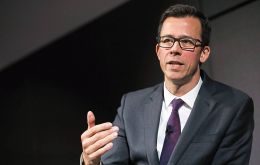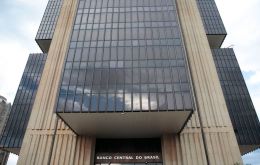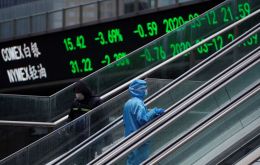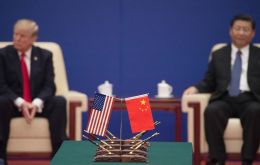MercoPress. South Atlantic News Agency
Tag: interest rates
-
Monday, February 22nd 2021 - 07:03 UTC
Bank of England divided over the use of negative interest rates

A member of Bank of England's Monetary Policy Committee, Gertjan Vlieghe, openly supported the use of negative interest rates if the U.K. needs more stimulus, while Deputy Governor Dave Ramsden said the bank still had scope for more quantitative easing. which has been a tried and tested policy.
-
Friday, February 5th 2021 - 08:21 UTC
Bank of England tells banks to prepare for negative interest rates

The Bank of England (BOE) told banks to start getting ready for negative interest rates but added that the message shouldn’t be taken as a signal that the policy is imminent. The BOE made the announcement as it held its key rate at a record low of 0.1%.
-
Wednesday, January 13th 2021 - 09:14 UTC
Brazilian interest rates in the next 24 months expected to rise steadily

The outlook for Brazilian interest rates over the next two years rose to their highest in several months, a central bank survey of economists showed on Monday, even as exchange rate and inflation expectations held steady.
-
Saturday, November 28th 2020 - 08:52 UTC
Producer inflation in Brazil rose 3,4% in October and 19,1% in twelve months

Producer price inflation in Brazil jumped to its highest on record in October, figures showed on Thursday, led by another month of rising food prices, which will likely stir the debate further on the wider outlook for inflation and interest rates.
-
Monday, March 16th 2020 - 11:19 UTC
G7 global rescue: Fed cuts rates to almost zero and launches US$ 700bn stimulus program

The US has cut interest rates to almost zero and launched a US$ 700bn stimulus program in a bid to protect the economy from the effect of coronavirus. It is part of a coordinated action announced on Sunday in the UK, Japan, the Eurozone, Canada, and Switzerland.
-
Thursday, March 12th 2020 - 07:35 UTC
Coronavirus: Bank of England cuts interest rate 50 basis points to 0.25%

The Bank of England (BOE), the UK's central bank, cut interest rates by 0.5 percentage points on Wednesday morning as part of an emergency response to the coronavirus, or COVID-19.
-
Thursday, November 21st 2019 - 09:21 UTC
Fed dismisses the idea of negative interest rates, despite Trump's insistence, according to released minutes

US central bankers last month dismissed the idea of taking interest rates into negative territory, something President Donald Trump has called for many times, according to meeting minutes released on Wednesday.
-
Thursday, October 10th 2019 - 09:50 UTC
Deflation in Brazil: consumer prices during September slipped 0.04%

Brazilian consumer price inflation fell to its lowest in more than a year in September, official figures on Wednesday showed, a reading below the central bank’s target that is likely to strengthen expectations of another cut in interest rates.
-
Saturday, September 14th 2019 - 21:56 UTC
ECB slashes rates to its lowest and introduces quantitative easing to stimulate the European economy

The European Central Bank announced a sweeping round of stimulus for the continent's slowing economy, cutting interest rates to their lowest ever level and introducing a round of quantitative easing.
-
Friday, September 6th 2019 - 09:50 UTC
Fed estimates US/China trade war could cost US$ 850bn in lost global trade

Trade policy uncertainty driven by the Trump administration's escalating dispute with China means hundreds of billions of dollars in lost U.S. output and as much as US$850 billion lost globally through early next year, research published this week by the Federal Reserve suggests.
